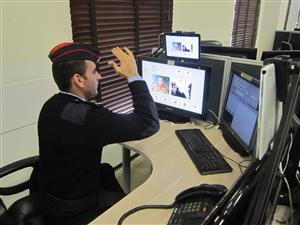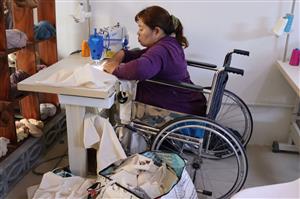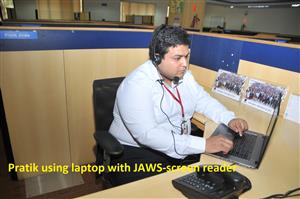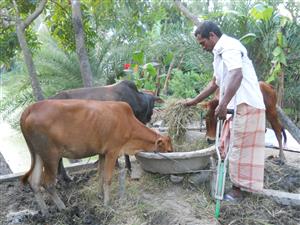Search Results
Search
Filter results
Advanced Filters
Your search returned 883 Solutions
-
Helpline and platform on personalised care
The project provides advice and information on community-care direct payments, creating an individual budget, securing social service funding, and employing personal assistants. A free download area on the website and a bi-monthly newsletter share personal stories and Q&A sections with a broad audience.
Disability Rights UK, United Kingdom -
Voting and participating in the electoral process
With its two regulations, Spain has introduced a voting procedure for blind electors as well as basic conditions of accessibility and non-discrimination for persons with disabilities to participate in elections and political life. This latter legislation is a broader policy framework aimed at improving the implementation of participatory rights.
Spanish Ministry of Home Affairs, Department on Electoral Cooperation, ROYAL DECREE 1612/2007 ON AN ACCESSIBLE VOTING PROCEDURE FOR PEOPLE WITH VISUAL DISABILITIES & ROYAL DECREE 422/2011 ON THE CONDITIONS FOR THE PARTICIPATION OF PERSONS WITH DISABILITIES IN POLITICAL AND ELECTORAL PROCESSES, Spain -
Tactile Ballot Guides for Blind Voters
The tactile ballot guide has cut-out holes and lines along one side to indicate the sequence of candidates. The ballot paper is placed under the guide and an audio recording describes the parties and candidates that correspond to the holes. The guide can be used multiple times and does not require knowledge of the Braille font.
Central Election Commission of Georgia, Georgia -
Training Disability Representatives to work with local district officials
Light for the World has set up a programme in the Pursat province of Cambodia to create and train Commune and Village Disability Representatives (CDRs and VDRs) to advocate for inclusive policies. As of 2018, 251 persons have been trained and their roles have led to policy changes, including access to free health care and assistive devices.
Light for the World Austria, CDR and VDR, Cambodia -

Video emergency line for the hearing-impaired
The project includes the training of officers at the Jordan Command and Control Centre (JCCC) to communicate using sign language and the development of an ICT system that enables the JCCC to accept video calls via a special line. An information campaign on the use of the video emergency call was also carried out.
HCD - Higher Council for Affairs of Persons with Disabilities, Jordan -

Training job coaches to support jobseekers with disabilities and employers
Since 2018 the Accessible Employment project has been training people with and without disabilities in Cambodia as job coaches, who then support jobseekers while also working with employers. In 2019 there were ten trained job coaches, and 54 people with disabilities had gained employment.
Light for the World Cambodia, Accessible Employment, Cambodia -
Forum theatre alleviates war trauma and creates an inclusive stage and art experience
Northern Uganda Hip Hop Culture's forum theatre addresses the challenges faced by people with disabilities, such as land grabs, denial of rights, and divorce. It uses audience interaction to explore solutions together, and can be easily adapted to different types of issues.
Northern Uganda Hip Hop Culture, The Forum Theatre, Uganda -
A whole IKEA department run by persons with disabilities
alsterarbeit is a social enterprise providing jobs for people with disabilities such as gardening, carpentry, packaging, IT, and gastronomy. In June 2014, the organization entered an agreement with IKEA to run the recovery department of IKEA at the Altona store in Hamburg, creating 30 jobs for people with disabilities.
alsterarbeit, Cooperation with IKEA, Germany -

Creating an inclusive strategy for a multinational company
Wipro Ltd. is a global IT- and consulting company with a workforce of more than 170,000 people. In 2009, Wipro launched a formal Disability Inclusion Policy Framework and governance mechanism to create an inclusive environment within the company, benefitting more than 2,000 people with various disabilities.
Wipro Ltd., inclusive company strategy, India -

Initiating microfinancing and micro-enterprises for a whole city sub-district
In 2015, YPSA surveyed 1,250 persons with disabilities in Sitakund and organized them into 50 self-help groups. Based on their socio-economic background and personal interest, 250 persons were selected to receive interest-free loans, vocational training as well as support to establish their own businesses.
YPSA - Young Power in Social Action, Sitakund sub-district of Chittagong, Bangladesh
- Page 1
- Page 2
- Page 3
- Page 4
- Page 5
- Page 6
- Page 7
- Page 8
- Page 9
- Page 10
- Page 11
- Page 12
- Page 13
- Page 14
- Page 15
- Page 16
- Page 17
- Page 18
- Page 19
- Page 20
- Page 21
- Page 22
- Page 23
- Page 24
- Page 25
- Page 26
- Page 27
- Page 28
- Page 29
- Page 30
- Page 31
- Page 32
- Page 33
- Page 34
- Page 35
- Page 36
- Page 37
- Page 38
- Page 39
- Page 40
- Page 41
- Page 42
- Page 43
- Page 44
- Page 45
- Page 46
- Page 47
- Page 48
- Page 49
- Page 50
- Page 51
- Page 52
- Page 53
- Page 54
- Page 55
- Page 56
- Page 57
- Page 58
- Page 59
- Page 60
- Page 61
- Page 62
- Page 63
- Page 64
- Page 65
- Page 66
- Page 67
- Page 68
- Page 69
- Page 70
- Page 71
- Page 72
- Page 73
- Page 74
- Page 75
- Page 76
- Page 77
- Page 78
- Page 79
- Page 80
- Page 81
- Page 82
- Page 83
- Page 84
- Page 85
- Page 86
- Page 87
- Page 88
- Page 89